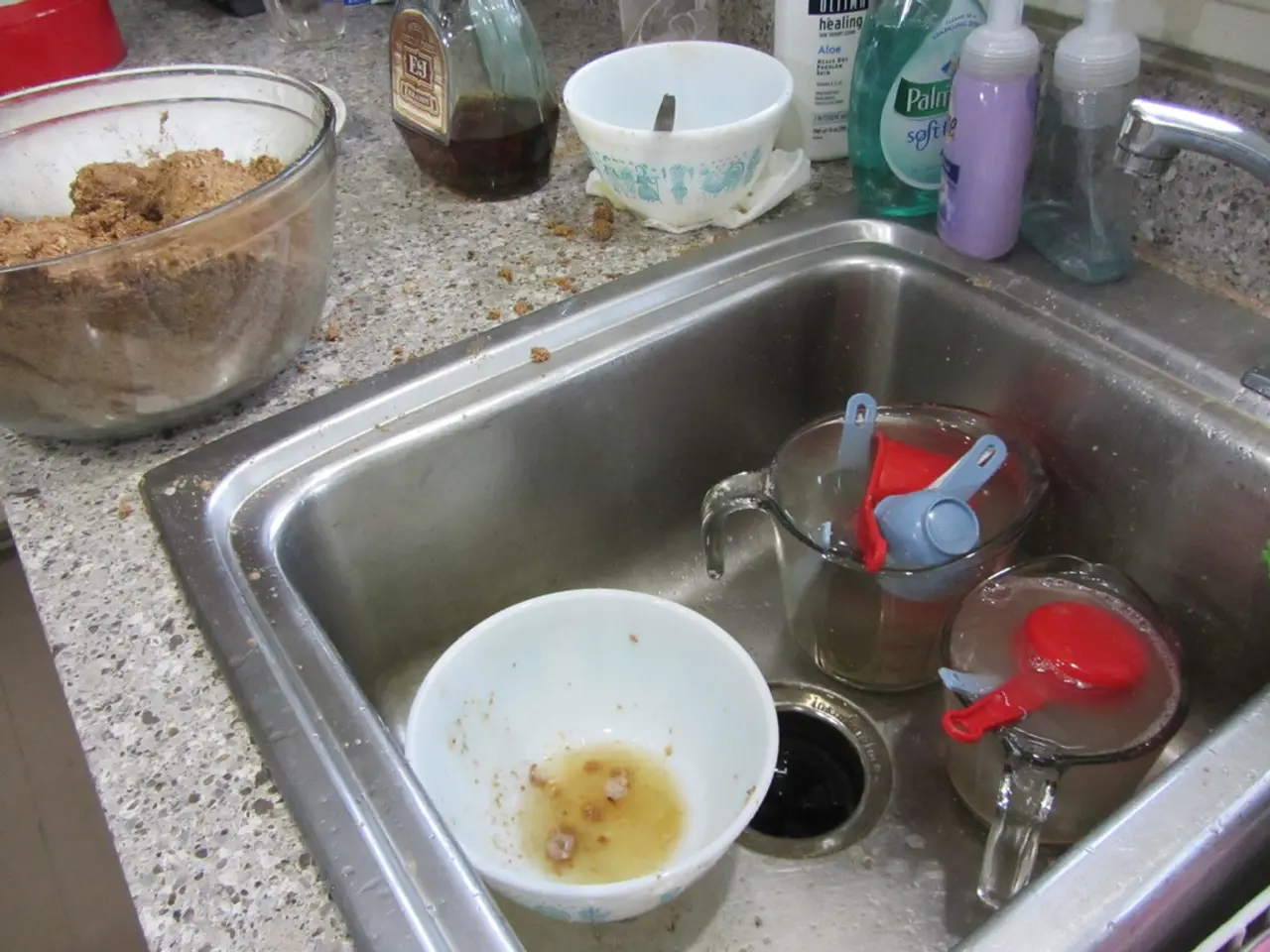Over-sanitization May Impact Immune System Strength
In the midst of the current global health crisis, there have been various speculations about the impact of increased hand-washing and disinfecting on our immune systems. Let's separate fact from fiction and shed some light on this important topic.
Firstly, it's essential to understand that the average adult requires seven to nine hours of sleep a night for optimal immune function. A well-rested body is better equipped to combat infections.
Next, a balanced diet rich in fibre and healthy fats can help keep inflammation at bay, supporting overall immune health.
Regular exercise is another key component in maintaining a robust immune system. Keeping active not only boosts your mood but also strengthens your body's defence mechanisms.
The hygiene hypothesis, a theory that suggests increased exposure to microbes early in life could lead to a stronger immune system, has been a topic of debate for some time. However, it's important to clarify that there is no scientific evidence to support the notion that temporarily increasing cleaning could be harmful to immune health. Hand hygiene remains a key preventive measure in reducing the transmission of viruses, including SARS-CoV-2, the virus that causes COVID-19.
Concerns about the potential weakening of the immune system due to excessive hand-washing and disinfecting during the pandemic are largely unfounded. Proper handwashing removes pathogens from the skin, reducing infection risks without impairing immune function.
Stress, on the other hand, can have a detrimental effect on the immune system. When the body experiences prolonged periods of stress, it produces cortisol, a hormone that can lead to inflammation and reduce the body's ability to fight infections.
Other harmful behaviours, such as smoking and excessive drinking, can also weaken the immune system. It's crucial to avoid these practices to ensure optimal immune health.
It's also worth noting that there are many other factors that can affect immune health, such as mental health, diet, and lifestyle choices. Studies have repeatedly shown that these factors play a significant role in immune function, far beyond personal hygiene.
In conclusion, increased handwashing and disinfecting during the COVID-19 pandemic serve to support public health and individual immunity by lowering infection risk, with no evidence supporting an immune system weakening effect. The Centers for Disease Control and Prevention (CDC) continues to recommend washing hands frequently and cleaning frequently touched surfaces to help prevent the spread of COVID-19.
Remember, a healthy lifestyle, including regular exercise, a balanced diet, adequate sleep, and stress management, forms the foundation of a strong immune system. And as always, consult with a healthcare professional for personalised advice on maintaining immune health.
References:
- CDC: Handwashing
- CDC: Cleaning and Disinfecting
- James Fernandez, MD, PhD: Hand Hygiene and the Immune System
- The Hygiene Hypothesis: Friend or Foe?
- Maintaining a balanced diet rich in fiber and healthy fats, getting adequate sleep, and engaging in regular fitness and exercise are key elements in building a robust immune system, as supported by numerous studies.
- Sleeping for an average of seven to nine hours a night is crucial for optimal immune function, ensuring the body is well-rested and better prepared to combat infections.
- Contrary to some concerns, there is no scientific evidence suggesting that increased hand-washing and disinfecting can harm immune health; in fact, these practices serve to reduce infection risks.
- The Centers for Disease Control and Prevention (CDC) continues to recommend frequent handwashing and cleaning of frequently touched surfaces to prevent the spread of viruses like SARS-CoV-2, the virus causing COVID-19. However, it's important to emphasize that mental health, diet, and lifestyle choices also play essential roles in maintaining a healthy immune system, as indicated by numerous research findings.





